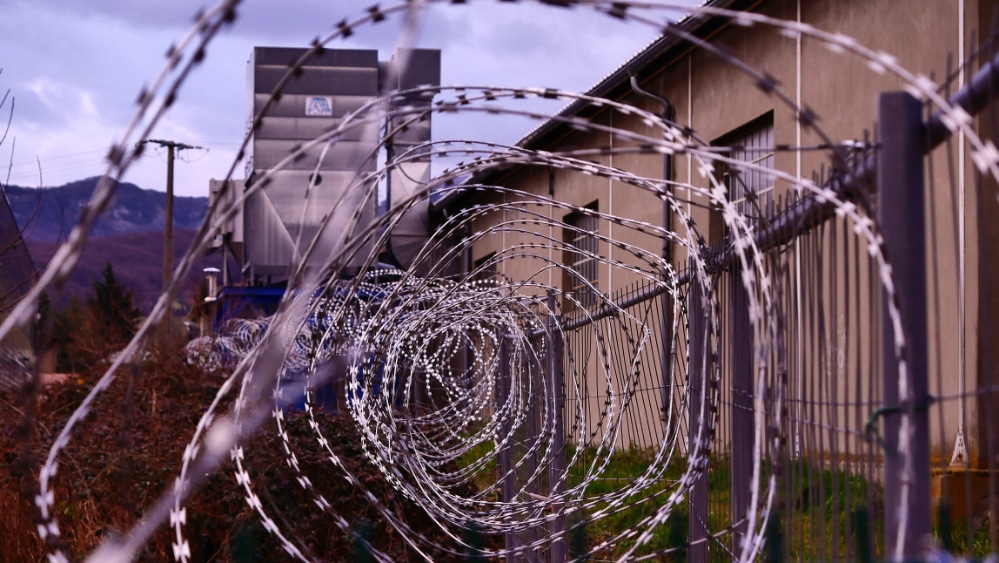On January 26, President Joe Biden signed a series of executive actions focused on racial equity. Among four orders issued, he committed to curtailing the federal government’s relationship with private prisons. The order, which reinstates an Obama-era policy, will have relatively limited impact, however—and doesn’t apply at all to immigrants detained by ICE.
“Privately operated criminal detention facilities consistently underperform Federal facilities with respect to correctional services, programs, and resources,” the order reads. “We should ensure that time in prison prepares individuals for the next chapter of their lives […] The Attorney General shall not renew Department of Justice contracts with privately operated criminal detention facilities, as consistent with applicable law.”
As Biden noted, a 2016 DOJ investigation found safety and security in private prisons to be lower than in federal prisons. But that doesn’t even get into the ethical conversation about companies profiting from keeping more people imprisoned. As Filter has reported, the manifold problems associated with private prisons, such as those in Denver, Colorado and Delaware County, Pennsylvania, include poor medical care, health standards violations, torture, suicide, violence and more.
To break the system down: The federal government detains and incarcerates people largely through the Bureau of Prisons (BOP), which operates prisons and jails nationwide. These range from high-security United States Penitentiaries like USP Leavenworth, Kansas, which hold people convicted of federal crimes, to facilities like the Metropolitan Detention Center, Brooklyn, which hold people awaiting trial in federal court.
In addition, the US Marshals Service (USMS), the law enforcement arm of the federal courts, detains hundreds of thousands of people each year, including those convicted of a crime and those who are not. The USMS does not own any prisons or jails—instead, it takes people to county jails, private prisons and some federal facilities. Both the BOP and the USMS are divisions of the US Department of Justice (DOJ), which is why Biden’s order instructed the DOJ not to renew any private prison contracts.
Of the estimated total of 2.3 million incarcerated people in the US, 226,000—about 10 percent—are held in the federal system (including those detained by USMS and held in various non-federal facilities), per March 2020 Prison Policy Initiative figures. The Associated Press estimates that 152,000 are currently held by the BOP and 14,000 by private prisons.
This means that under 10 percent of all the people incarcerated by the federal government, or under 1 percent of all people behind bars in the US, are held in private prisons covered by Biden’s order. (The order doesn’t, of course, apply to states’ contracts with private prisons).
So while the executive action is likely to make the federal system marginally more humane—and illustrates why the private prison industry heavily backed Republican candidates in the 2020 elections—it comes with major limitations and caveats.
One, of course, is that it doesn’t reduce the government’s prison population. The 14,000 people currently held in private prisons on federal charges will presumably be transferred to BOP facilities, not released. Besides the inherent violence of all incarceration, federal facilities have their own appalling records of human rights violations, including negligence and denial of communication with loved ones during the pandemic, torture, forced treatment and many other abuses.
But another area of human rights abuses that Biden’s order does nothing to change is immigration detention. Immigrations and Customs Enforcement (ICE) is the federal agency that focuses on detaining people charged with immigrations violations. Per 2017 data, three out of four immigrants detained by ICE are held in private prisons.
Because ICE is not part of DOJ but rather comes under the Department of Homeland Security umbrella, Biden’s order does not apply to ICE. It is therefore misleading to say that Biden is ending the federal government’s use of private prisons: Over 27,000 immigrants held in them would argue otherwise. Biden is reportedly considering ending immigrant detention in private facilities, but is not currently prioritizing it.
His January 26 order, let’s remember, merely nixes a Trump-era policy to reestablish the Obama administration’s position. After everything that happened in 2020, after millions of people took to the streets all over the world to protest racial injustice, is the best we can do to go right back to where we were in 2016?
President Biden will have go much further if he’s to demonstrate sincerity in his purported pursuit of racial justice.
Photo by Hédi Benyounes on Unsplash





Show Comments